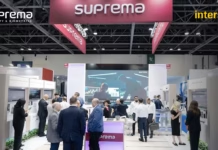
Pre/employment Screening has Become a Necessity in Modern Business Affairs
Can Serbia Compete in HR Security Services?
A background check in the recruitment process has become standard procedure in hiring. Originating in the US, this practice has spread worldwide and become familiar in many national business cultures. However, as an exclusive practice among specific government organizations and their units, including some multinational enterprises in the past, today, we see apparent transformation and application of some form of background check by mid-size and even small businesses. As a result, employment screening is no longer a privilege of individual industry sectors and business entities; it is widely applied across various industries and business sizes.
Our experience testifies that 80% of job applicants lie on resumes or amplify the truth. This percentage even exceeds 90% among nationals in developing countries. Common red flags in inflated resumes are exaggerated experience, mastered skills barely used, inflated titles, roles, positions, longevity, particular duties, and responsibilities. In addition, unearned degrees in resumes, professional certificates, and licensing are not rare.
In Serbia, more than 60% labor force is hired based on referral, meaning that the new hire’s credentials are never or poorly verified. This trend is even more extreme in the public sector. In addition, most employers are aware of hiring a dishonest applicant if there is, as they say, „a sound“ explanation or credible arbitrator.
As a result, many, mainly western businesses operating in Serbia, are puzzled by different forms of unprofessionalism, absenteeism, sick-leave abuse, workplace harassment, vandalism, and workplace drug and alcohol abuse. We must emphasize that this confusion is not due to the shortage of the same incidents in other national environments but from differences in expression and creativity arising from particularities of domestic culture.
Alarming are concerns over misappropriations, thefts, billing frauds, travel, subsistence, and receipts scams, breaches of regulations concerning business secrets, and non-compete clauses. The primary cause are habits acquired during the period of isolation (Ex-Yu war and post-war time), poverty, and general hopelessness that degraded the humble traditional norms of the Balkan population. Additionally, people in the Balkans are not accustomed to working on a strict schedule. „Clock in and out,“ hourly wage, and commission are models recently introduced in the Serbian business arena. Volunteerism and paid internships are products of relatively recent legislation. In addition, government-owned enterprises and workers-self-management in socialistic Yugoslavia led to the institutionalization of corruption; private initiative and ownerships were insignificant. Self-management was a system whereby workers themselves were shareholders not allowed to invest their earnings individually but to increase the collective wealth of the organization.
Thus, workers’ only task was to profit the organization. For any enterprise to work efficiently, it must have an efficient structure, effective management, and incentives and discipline; self-management had none of these features. Thus, Serbia has a half a century delay in catching up with western socio-economic systems.
Serbia’s business culture has changed and grown over the past decade, pushed by an increasing number of international corporations seeking an inexpensive but well-educated labor force. However, among foreign enterprises, western yet still dominate, shifting in favor of Kina and Russia. Still, western values have already rooted in Serbian society, and the effects of globalization are widely spread over society. Additionally, optimistic diaspora is returning, bringing those decent capitalistic values and business habits into immature Serbian democracy. Also, many young, particularly IT experts, are working remotely for multinational companies earning higher than the national average wage. But, most importantly, they are developing a different business culture that slowly reshapes the traditional socio-communistic environment with new business manners and higher than average income.
Apart from specific socio-cultural parameters, the current political model and media divided the population into extreme supporters of a leading political party and harsh opponents. Although this division may not be entirely accurate as presented in media, in fact, nepotism has leaked from the public to the private sector since the early 2000s. Therefore, questioning someone’s credibility penetrates political interests through a systematic background check, and such practice, especially if conducted by an independent private organization, is highly unwelcoming. Moreover, the monopoly of former and retired government armed forces and intelligence officers in the private sector, accustomed to politically colored decisioning, does not provide opportunities for the development of professional corporate security organizations compatible with western peers. Such agencies in Serbia are deeply congested by remnants of communistic practice whose primary goal was to protect a leading political party making those agencies rigid and incompetent in a highly capitalistic orientation over profit rather than ideology.
While private investigator peers worldwide aim to preserve their clients’ economic stability and progress, private detectives in Serbia still struggle with distinguishing private from public business affairs. Biases and subjectivism prevent prospective cooperation with international corporate security partners. Lack of long-term goals and agendas among private investigators in Serbia suppress the development of a highly professional Serbian PI association. Most domestic PIs act in an ad hoc manner, generally without clear policies and procedures; requests, when they are received, are handled according to the discretional perception of the PI and not with respect to the requested scope and code of conduct. Decisions are greatly influenced by previous experience in the public sector, and the burden of unmatching bureaucracy stimulates the ineffectiveness of Serbian private investigation in general. The absence of government contracting services and partnerships between the public and private sectors contributed to the blindfolded Serbian PIs who have gotten lost in transition. Therefore, it is not surprising why domestic investigators do not handle corporate issues on Serbian soil occurring among international and multinational corporations operating here but are those tasks entrusted to international investigator teams.
Apart from a few legal and cybersecurity experts, lawyers and other legal professionals, including financial auditors and finance experts, have not yet recognized the importance of cooperation with PIs.
Law on private detective activities of the Republic of Serbia stipulates that only licensed PI is authorized to conduct pre-employment screening and background check of an applicant, prospective and/or current employee. Legal prerequisites are the applicant’s written consent and power of attorney authorizing PI to perform a background check on behalf of an employer. In practice, this stipulation has been frequently ignored by foreign HR companies operating in Serbia and individual HR departments in large corporations. Despite their resumes’ authentication approach, consisting of previous experience, education, references, etc., verification, they often unlawfully conduct a full-scope background check of an applicant, including his/her criminal, medical, and other protected data checks without consent. Moreover, they are not even aware they are exceeding their authorizations since there is no established external control. Questions concerning GDPR are strictly enforced in developed countries, while few of us work on bringing those standards to an acceptable level in the national arena. There are no interest parties, and things move slowly. Candidates are eager to get hired and take no care of how their personal data is processed and stored. An external authority does not control internal policies. Reaction arises from sporadic data leaks incidents, but no liability is ever determined.
SCORP makes sure background check is conducted per applicable domestic and international laws, best standards, and procedures. In addition, we extend our support to all personal data processors, particularly in the recruitment process. Our methodology matches contemporary clearance classification, and we make sure each candidate’s qualifications, professional and personal, perfectly fit the selected position. As a result, our random employee screening has grown into the best anti-fraud and anti-incident preventive measure.

Investments in employment screening have reached three times more in return, meaning that 1 Euro invested in a background check results in 3 Euros in return. Hiring someone with false credentials (fake diploma that HR manager can’t check) go beyond questions about the return on investments but shakes issues about liability, reputation, and even criminal responsibility.
The vast majority of corporate fraud comes from internal sources. Internal sources are employees or the organization itself: individual morality, lack of supervision, poor knowledge about fraud, peer pressure, and overall corruptive climate are the major causes of corporate fraud. A common denominator is a person. So, who you bring on board dictates your overall corporate environment from bottom to top management.
Companies that don’t recognize the importance of HR security; background checks in the recruitment process, in fact, don’t understand corporate risk assessment and symbiosis between poorly-selected candidates and ineffective strategic planning, non-profitable decisioning, poor competition, jeopardized reputation, loss, etc.
When conducting a background investigation, SCORP complies with the effectiveness and economy principle; resources are adjusted and allocated for lower-to mid-level employees and expanded for the potential executives. In addition, any applicant considered for a position of trust goes through close examination.
Background check done by SCORP consists of verification of the following:
- Employment history (through direct contact with a former employer)
- Professional references (through direct contact)
- Education verification (through the issuing educational institution)
- Professional licensure (through appropriate issuing agency)
- Criminal history* (obtained by applicant verified by us)
- Local law enforcement interviews
- Media and Internet search
- Mode of living review and neighborhood interviews
Law on Detective Activity (Official Gazette of the Republic of Serbia, no. 104/2013 and 87/2018) Article 10: https://www.paragraf.rs/propisi/zakon_o_detektivskoj_delatnosti.html
III Rights
-
Data Processing
Article 10
A licensed detective may process data on:
- missing person, a person who is hiding to avoid criminal, misdemeanor, civil, or other legal prosecution;
- individuals who have caused damage to a service user, if liability for damage is determined ;
- individuals who anonymously and unlawfully threaten the service user with or without causing harmful consequences;
- stolen or lost goods and items;
- corporate and business successfulness;
- intellectual and industrial property protection;
- employment candidates – only with the candidate’s written consent regarding data an employer is authorized to validate;
- civil lawsuits and perpetrators of these crimes;
- violation of labor duties and work discipline.
SCORP Mila Kisic PR






























